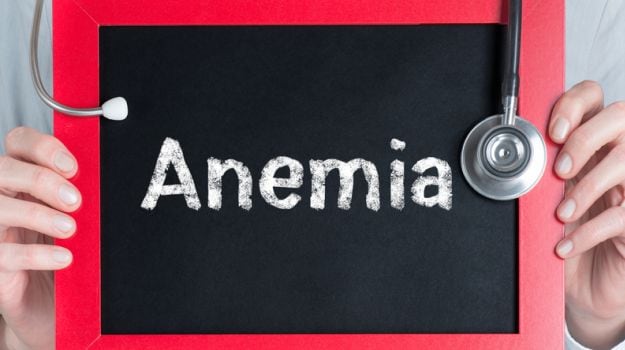Some older adults with anemia may fare worse after a stroke, a study suggests, although the reason and the right treatment are still unclear.
Anemia is common in older adults and has various causes, including a lack of red blood cells or low levels of hemoglobin, the proteins in red blood cells that carry oxygen throughout the body.
When researchers analyzed data on almost 30,000 stroke patients, they found anemia associated with almost twice the risk of dying in the first year after an ischemic stroke - the most common type that results from an obstruction in a blood vessel supplying the brain.
In the first year after a hemorrhagic stroke, the rarer type that occurs when a blood vessel in the brain bursts, anemia was associated with a 50 percent greater risk of dying. "Anemia can affect the oxygen carrying capacity of blood and can cause tissues not having enough oxygen," said senior study author Dr. Phyo Myint of the University of Aberdeen in Scotland. "We may be able to reduce the high mortality risk after stroke by identification and appropriately managing anemia in stroke patients," Myint added by email.
To assess the role of anemia in stroke survival odds, Myint and colleagues first examined data on about 8,000 elderly patients hospitalized after a stroke in the U.K. from 2003 to 2015.
On average, the patients were about 77 years old and when they were admitted to the hospital. One in four of them had anemia.
Over the next year, patients who had anemia at admission had worse survival odds after both ischemic and hemorrhagic strokes, researchers report in the Journal of the American Heart Association.
Researchers also found higher than normal hemoglobin levels were associated with poorer outcomes and worse survival odds, mainly within the first month following stroke.
To see if additional data could confirm what they found in these U.K. patients, researchers next analyzed findings from 20 previously published studies of stroke patients from a wide range of countries. Combined with the UK data, the pooled analysis included almost 30,000 patients. They found more evidence suggesting anemia is associated with worse survival odds after a stroke. In addition, they found both unusually high and low hemoglobin levels associated with worse stroke outcomes.
One limitation of the study is that the relatively small proportion of hemorrhagic strokes makes it harder to draw firm conclusions from the findings for those rarer events, the authors note. It's also possible that the research review may have overestimated the link between anemia and reduced survival odds if selective reporting skewed the patient populations toward worse cases, the authors also note.
Even so, the findings are important because many patients don't realize there may be a connection between anemia and stroke outcomes, said Dr. Philip Gorelick, a spokesman for the American Heart Association who wasn't involved in the study. "A key take-home message from the study is that patients in the general population with anemia, especially those with cardiovascular disease risks or disease, may be at risk for stroke and should be considered for appropriate guideline-based interventions to prevent stroke," Gorelick said by email.
Patients might need antiplatelet or anticoagulant drugs to stop clots from forming or at least slow down this process, and they might also need therapy to address anemia.
"Whether or not correction of anemia will prevent stroke remains uncertain," Gorelick added.







